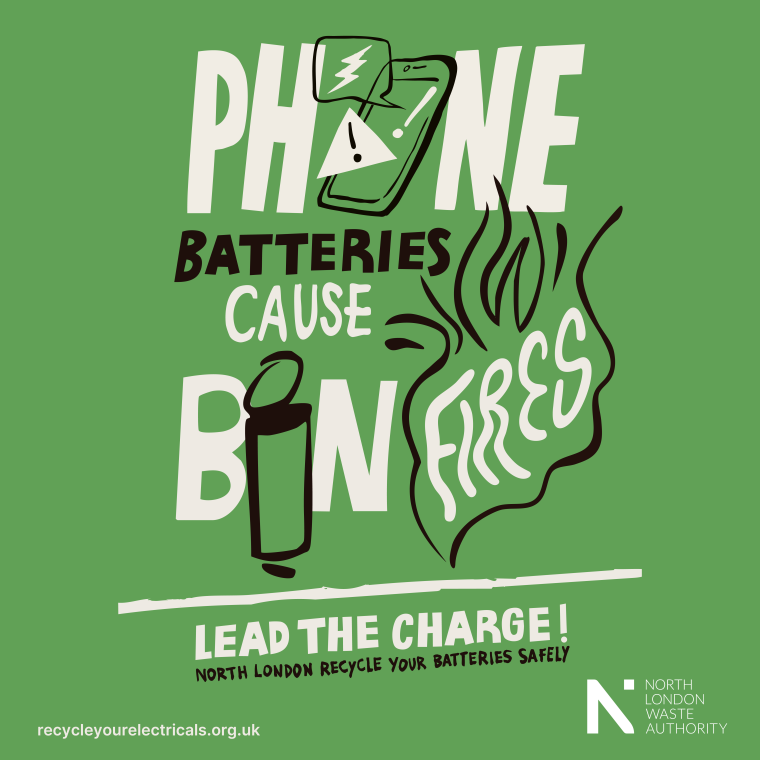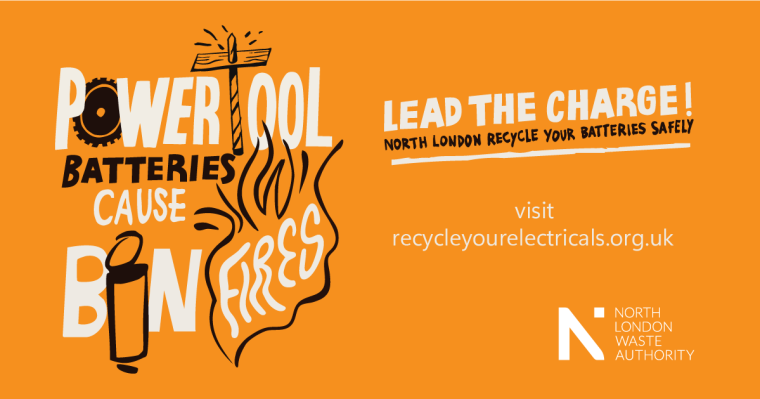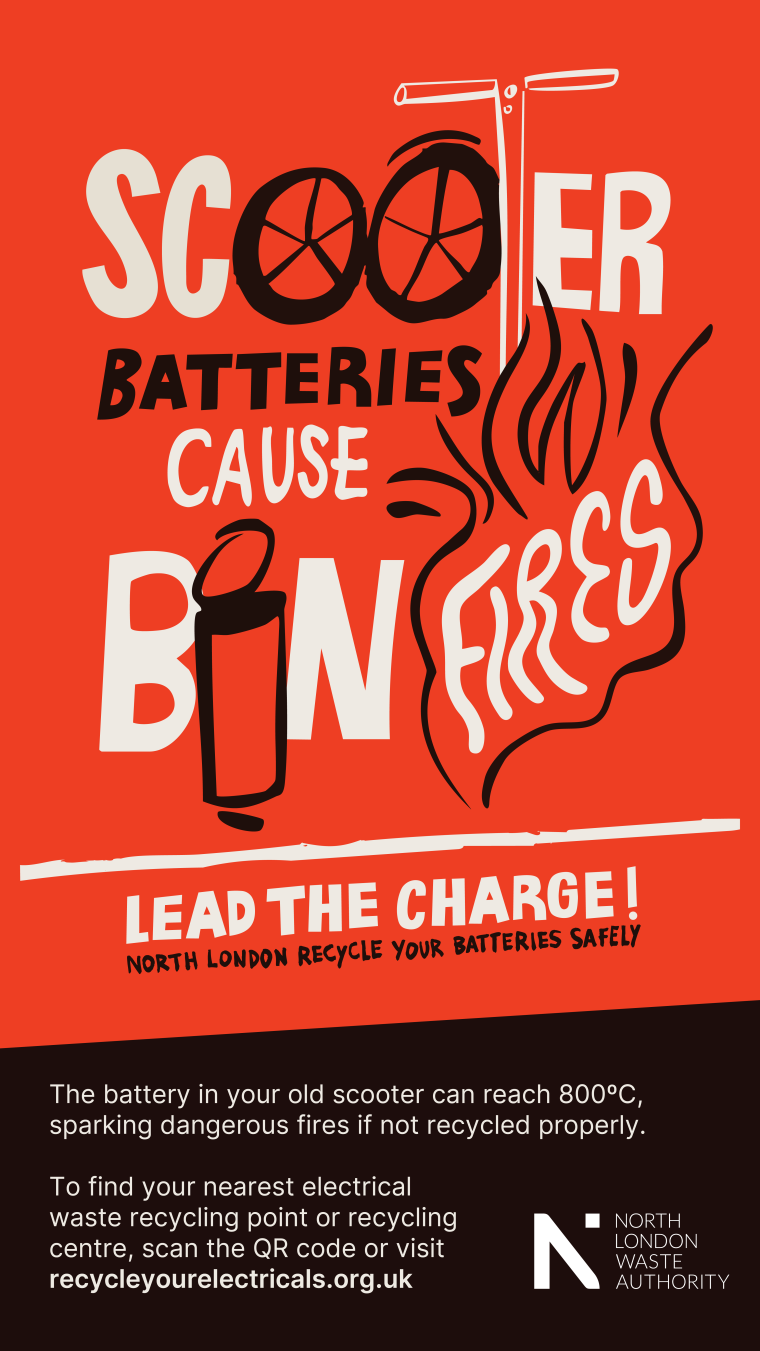Did you know lithium-ion batteries (found in most rechargeable electronic devices, like phones or laptops) can reach up to 800 degrees when overheated? That’s as hot as molten lava, and twice as hot as the surface of Mercury! This is due to a chemical reaction called ‘thermal runaway’, which can happen if the battery is old or damaged.
This means that electrical items can easily catch fire or even explode if they are thrown into general waste and become damaged in waste vehicles or facilities. NLWA has seen a steep rise in fires at our facilities in recent years, caused by electrical items like vapes, smartphones and even e-bikes and e-scooters.
Lead the Charge!
Our latest campaign, Lead the Charge, is designed to help north Londoners understand the risks of incorrectly throwing away their batteries, and where they can recycle them instead.

In the last half of October you might spot our eye-catching ads at bus stops, online or in your local newspapers.
So what do I do with my old electricals or batteries?
North London residents can recycle electricals and batteries at any of north London’s reuse and recycling centres, or at any on-street e-waste bank or retailer collection point, all of which can be found on the Recycle Your Electricals website.

The five main culprits
Our campaign focuses on five of the electrical waste items we most commonly see being incorrectly thrown away in general waste bins. These are:
- Vapes
- Smartphones
- Electric toothbrushes
- Power tools
- Scooter and e-bike batteries

The London Fire Brigade has particularly highlighted e-scooter and e-bike batteries as an area of concern. London Fire Brigade Deputy Assistant Commissioner for Prevention and Protection, Richard Field, said: "We’re pleased to be working with North London Waste Authority on this growing issue.
"Lithium-ion battery fires are a major risk and we are attending fires regularly involving waste in bin lorries. We’ve also attended significant fires at waste disposal sites across the capital, which we suspect are caused by lithium-ion batteries.
“These fires can be very time consuming for our firefighters and often require a high level of resources to extinguish. We’ve also seen the detrimental environmental and societal impact these fires can have on local communities.
“We urge people to check with the retailer or your local authority's website for the safest way to dispose of lithium-ion batteries in your area and reduce the risk of fires occurring.”

